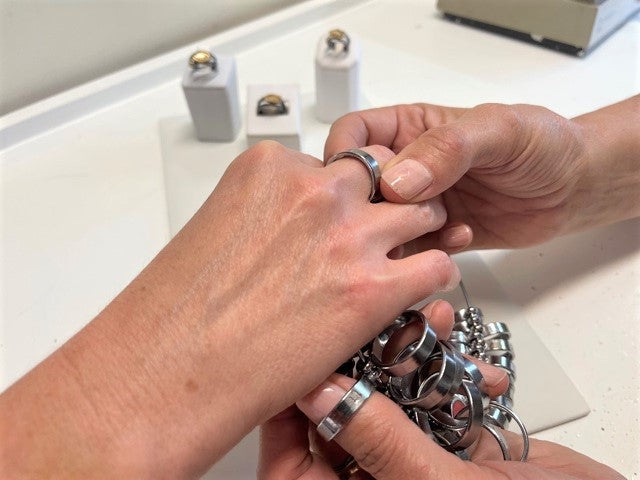The first thought that comes to our mind when we think of Indoor Air Quality is pollutants found outside. But oftentimes we ignore the indoors and the air quality that we breathe. According to a study, we spend as much as 90% of our lives indoors and the quality of the air you breathe indoors can affect your everyday lives and health. WHO (World Health Organization) reported that almost 3% of the global burden of diseases is because of poor Indoor Air Quality.
Indoor Air Quality or IAQ is the quality of air that is within and around an indoor space. This includes rooms, buildings, malls, offices and hospitals. Many pollutants such as second-hand cigarette smoke, furnaces, hearths, stoves and more cause the build-up of toxic gases indoors. Apart from the effects of such harmful gases, poor indoor air quality can increase the chances of transmitting airborne diseases such as influenza, chickenpox, measles and tuberculosis.
Table of Contents
The rise of Sick Building Syndrome (SBS) and Building-Related Illness (BRI)
Lately, a lot of medical cases have surfaced that are caused due to SBS and BRI. These bases are acute symptoms people experience in specific spaces but improve once they leave the space. The symptoms include fatigue, headaches, breathing problems, irritated nose, throat and eyes. These syndromes are prominent in places with lower ventilation rates, unclear indoors with high-level of pollutants and unsuitable temperatures.
This is why a 700-pages guide to create the best IAQ was introduced by the American Society of Heating, Refrigeration, and Air-Conditioning Engineers (ASHRAE). It involved the help of architects, building owners, managers, technicians and eco groups. According to the report, the 9 root causes of poor indoor air quality are:
- Building design and its construction
- Building not commissioned to check if it works for the occupants
- The dirty and damp ventilation system in the building
- Contaminant sources indoors
- Equipment and Activities that can add contaminants indoors
- Higher moisture content in the building enclosure
- Poor filtration system and air cleaning mechanism
- Poor outdoor air quality
- Poor ventilation
Can HVAC Systems Improve Indoor Air Quality?
One of the most important parts of maintaining a good IAQ is to contain the spread of viral illnesses by blocking them from entering the buildings. The adoption of a control strategy is what can help elevate Indoor Air Quality. For such a strategy to work for you, the Heating, Ventilation, and Air Conditioning (HVAC) system should function optimally. A sound HVAC system can mitigate and potentially eliminate many common air pollutants including the COVID-19 virus.

But transmission and prevention of air pollutants cannot be solved by an HVAC system alone. Some of the important strategies highlighted in the extensive Indoor Air Quality guide created by the American Society of Heating, Refrigeration and Air-Conditioning Engineers (ASHRAE) are:
1> UV and Plasma Air Purifiers
Conventional filtration systems can be enhanced by using a UVC & Plasma disinfection system because it captures smaller microorganisms that otherwise pass through filters. Such a system can destroy microbes in a matter of seconds. It has a 99.9% efficiency on a first-pass basis with concentrations further reduced each time the air circulates and passes through it.
Surface-cleaning UVC systems can provide 24/7 irradiation of HVAC/R components to destroy viruses, mould and proliferate on coils, air filters, bacteria, ducts and drain pans. It also prevents the growth of any pathogens that can eventually turn airborne and get circulated through the HVAC system.
An important aspect of a UVC & Plasma system is that it reduces the possibility of spreading contaminants through the HVAC system provided a safe hygiene practice is maintained by the people. This is especially true in case of the dreaded coronavirus that can spread through surfaces as well.
2> Filtration System
Filters are an integral part of any HVAC system to trap particulates and sub-micron contaminants that affect the health. These include dust, dirt, pollen, mould, mould spores, fibres, lint, pet hair, animal fur, bacteria and microorganisms.
The most widely used High-efficiency Particulate Air or HEPA filters are best-suited for critical care environments because of its 99.97% efficiency at trapping particles as small as 0.3 microns.
3> Ventilation System
One of the important aspects of any HVAC system is proper ventilation throughout smaller particles that remain airborne for a while. By moving the air outside the system, there is fresh air circulated indoors and the air inside the room is diluted with cleaner air.
Look for experienced experts such as Gateway Mechanical who can understand your building and design a customised HVAC system with the above systems for healthy indoor air quality.
The importance of Indoor Air Quality in commercial spaces
One of the side-effects of a poor IAQ is fatigue and nausea. But businesses need to be even more careful when selecting the office. Poor indoor air quality can directly hamper the workforce’s productivity and efficiency. Poor level of IAQ can directly affect the cognitive ability, mental acuity, problem-solving capability and teamwork between employees. The air quality has a direct bearing over how the employees work, think, make decisions, function and lead their lives.
Improving Indoor Air Quality: How to get started?
The following are the recommended steps and approach while planning to improve the IAQ of your space:
- Perform an indoor air quality (IAQ) This will help you identify the source of pollution and the type of pollutants that are present
- After identification, remove the indoor contaminant sources. Also, rule out any dirty or damp ventilation systems and moisture in the building enclosure that can actively keep hampering the IAQ
- Optimise your HVAC system by ensuring the ventilation and dilution rates are a minimum of 5-20 cfm/person, depending on space usage. Increase the Minimum Efficiency Reporting Value (MERV) for the system. Add or perform maintenance on a UV and Plasma Disinfection system. Ensure that the environmental control is maintained at 40-60% humidity and 22-23 degree Centigrade temperature
- Create a preventative maintenance and testing schedule for the HVAC system. Hire an expert such as Gateway Mechanical Services to help maintain and create a customised design for your building’s needs and budget.











